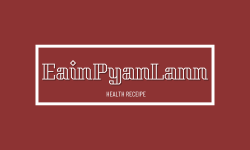The food we eat plays a pivotal role not only in our physical health but also in our mental function. Research suggests that certain brain foods can significantly enhance memory, improve normal brain function, and support cognitive performance. A healthy diet packed with essential nutrients and brain-boosting foods can help delay cognitive decline and protect brain cells, leading to improved memory and sharper focus. Let’s dive into the best foods for supporting brain health and reducing the risk of neurological diseases.
Brain-Boosting Nutrients for Mental Clarity
To keep our brain functioning optimally, it needs a steady supply of essential nutrients, including omega-3 fatty acids, antioxidants like vitamin E and vitamin C, healthy fats, B vitamins, and amino acids. These nutrients work together to support brain function, protect brain cells from damage caused by free radicals, and improve overall brain health. By boosting blood flow to the brain, these nutrients can also help prevent cognitive decline, maintain mental sharpness, and even reduce the risk of neurodegenerative diseases such as Alzheimer’s disease.
Understanding Brain Health
Brain health refers to the ability of the brain to function properly, enabling individuals to think, learn, and remember. Maintaining good brain health is essential for overall well-being, as it affects cognitive function, mood, and behavior. Factors such as genetics, lifestyle, and nutrition play a significant role in determining brain health. Research suggests that a healthy diet, regular exercise, and adequate sleep are crucial for supporting brain health and reducing the risk of cognitive decline.
The Role of Nutrition in Brain Function
Nutrition plays a vital role in brain function, as the brain requires essential nutrients to operate efficiently. A healthy diet rich in fruits, vegetables, whole grains, and lean proteins provides the necessary fuel for brain cells to function properly. Omega-3 fatty acids, found in fatty fish, nuts, and seeds, are particularly important for brain health, as they support the structure and function of brain cells. Additionally, antioxidants, such as vitamin E, help protect brain cells from damage caused by free radicals.

Top Foods to Enhance Focus and Concentration
Here are some of the best brain foods proven to enhance memory, protect brain function, and reduce the risk of cognitive decline.
1. Fatty Fish: A Source of Omega-3 Fatty Acids
Fatty fish, such as salmon, trout, and sardines, are some of the best sources of omega-3 fatty acids, which are essential for a healthy brain. Omega-3s are incorporated into the cell membranes of brain cells, improving the structure of neurons and supporting overall brain function. Studies indicate that these fatty acids can help prevent cognitive decline, delay the onset of Alzheimer’s disease, and enhance memory by promoting brain development and supporting brain health throughout life. Omega-3 fatty acids also help reduce brain fog and improve focus, making fatty fish an ideal choice for maintaining mental clarity.
2. Leafy Greens for Brain Health
Leafy green vegetables, including spinach, kale, and broccoli, are high in nutrients like vitamin E, vitamin C, and B vitamins, all essential for brain health. These vitamins have antioxidant properties that protect brain cells from free radicals, which contribute to brain aging and cognitive decline. Leafy greens also support blood flow to the brain, which can improve cognitive function and boost memory. The combination of antioxidants and vitamins in leafy greens helps maintain mental sharpness and may even reduce the risk of neurodegenerative disorders.
3. Berries: Antioxidant Powerhouses
Berries, particularly blueberries, are among the most potent brain-boosting foods, packed with antioxidants that help protect brain cells from oxidative stress and free radical damage. Studies show that the high levels of antioxidants in berries can improve brain function, support memory retention, and delay cognitive aging. Berries have positive effects on brain chemicals that are essential for healthy brain function, reducing the risk of memory loss associated with brain aging. The health benefits of these delicious fruits make them a valuable addition to any brain-boosting diet.
4. Nuts and Seeds: Vitamin E and Healthy Fats
Nuts and seeds, particularly pumpkin seeds, almonds, and walnuts, provide healthy fats, vitamin E, and other nutrients that support brain health. Vitamin E is a powerful antioxidant known to protect brain cells from oxidative stress, which can lead to cognitive decline. The healthy fats found in nuts and seeds also support brain function by maintaining cell membranes and boosting brain chemicals essential for cognitive performance. Pumpkin seeds, in particular, are rich in zinc, which has been linked to improved memory and enhanced cognitive function, making them a great snack for mental clarity.

5. Whole Grains for Sustained Energy
Whole grains such as oats, barley, quinoa, and brown rice are excellent sources of complex carbohydrates and dietary fiber. These nutrients provide a steady supply of glucose, which fuels the brain and supports cognitive function. Whole grains also contain B vitamins, which have brain-boosting benefits by aiding in the conversion of food into energy and supporting mental clarity. By consuming whole grains, you promote consistent blood flow to the brain, which can help improve memory and reduce brain fog. Whole grains are a foundational component of a healthy diet that benefits both physical and mental health.
6. Dark Chocolate: A Delicious Mental Boost
Dark chocolate, particularly varieties with 70% or more cocoa, is rich in antioxidants, including flavonoids, which are known for their ability to support brain health. Flavonoids improve blood flow to the brain, protect brain cells, and may help delay cognitive decline by reducing oxidative stress. Additionally, dark chocolate contains small amounts of caffeine, which can enhance cognitive performance and improve mood without the risk of consuming too much coffee. The combination of antioxidants and caffeine in dark chocolate offers positive effects on focus, alertness, and overall mental clarity, making it a tasty and beneficial addition to your diet.
7. Eggs: Choline for Memory and Focus
Eggs are an excellent source of choline, an essential nutrient that plays a role in brain development and supports brain function. Choline is essential for maintaining normal brain function, as it supports the production of neurotransmitters that regulate mood and memory. Choline is vital for producing acetylcholine, a neurotransmitter involved in memory, mood, and cognitive function. By including eggs in your diet, you’re promoting healthy brain function and enhancing memory retention. In addition to choline, eggs contain B vitamins that support cognitive function and protect against age-related memory loss. Eating eggs regularly as part of a balanced diet can have long-term benefits for brain health and may reduce the risk of mild cognitive impairment.

8. Green Tea for Relaxed Alertness
Green tea is packed with antioxidants, including catechins, which help protect brain cells from damage caused by free radicals. It also contains L-theanine, an amino acid that promotes relaxation and calmness without causing drowsiness. When combined with the moderate caffeine content in green tea, L-theanine can improve mental clarity, increase alertness, and enhance cognitive function. Drinking green tea regularly has been associated with reduced risk of neurodegenerative disorders, such as Alzheimer’s disease, and supports long-term brain health. The unique blend of caffeine and L-theanine in green tea offers a balanced way to boost focus and reduce brain fog.
Foods to Limit for Better Mental Clarity
While incorporating brain-boosting foods is essential, it’s also important to limit foods that may impair cognitive function. High-sugar and processed foods can lead to blood sugar spikes, followed by crashes, which can negatively affect focus and mental clarity. Research suggests that diets high in trans fats and refined sugars can increase the risk of neurodegenerative diseases and may contribute to cognitive decline. Excessive caffeine consumption, such as drinking too much coffee, can also disrupt focus and increase anxiety, impacting overall mental health. Reducing these foods and choosing healthier alternatives can help maintain consistent energy levels and improve cognitive performance.
Creating a Diet for Mental Focus: Tips and Ideas
Building a diet for optimal brain function doesn’t require any single brain food but rather a balanced approach that incorporates a variety of nutrient-dense foods. Start by including plenty of plant-based foods such as leafy greens, whole grains, and nuts, which support brain function and overall health. Include sources of omega-3 fatty acids like oily fish, as these are linked to cognitive benefits and may reduce the risk of neurodegenerative diseases. Incorporate antioxidants from berries and dark chocolate to protect against oxidative stress and support healthy brain aging.
Adding olive oil as a healthy fat in cooking or salads can further protect brain cells and support blood flow. Finally, consider drinking coffee or green tea in moderation to enjoy the cognitive boost without overconsuming caffeine. By focusing on these dietary principles, you can create a daily eating plan that boosts memory, enhances brain function, and keeps your mind sharp over time.
The Role of a Healthy Diet in Preventing Cognitive Decline
A healthy diet full of diverse brain foods can help prevent cognitive decline by providing the nutrients needed to keep brain cells strong and resilient. These foods contribute to physical health and mental well-being, reducing the risk of chronic diseases that can affect brain function, such as diabetes and cardiovascular disease. By incorporating a range of nutrient-dense foods, you can support brain health and create a foundation for long-term mental clarity.
Scientific evidence consistently shows that diets rich in whole grains, leafy greens, fatty fish, nuts, and antioxidant-rich fruits help to maintain a healthy brain and reduce the risk of cognitive decline. These foods can also help combat the effects of brain fog, improve mental clarity, and reduce the risk of memory loss.
Foods to Avoid for Brain Health
While certain foods support brain health, others can have a negative impact. Foods high in sugar, salt, and unhealthy fats can lead to inflammation and oxidative stress, which can damage brain cells and contribute to cognitive decline. Processed and packaged foods, which are often high in unhealthy ingredients, should be consumed in moderation. Furthermore, foods high in saturated and trans fats, such as red meat and full-fat dairy products, can increase the risk of Alzheimer’s disease and other neurodegenerative disorders.
Lifestyle Factors for Brain Health
In addition to nutrition, lifestyle factors play a significant role in maintaining brain health. Regular exercise, such as aerobic exercise and strength training, can improve blood flow to the brain, boosting cognitive function and reducing the risk of dementia. Adequate sleep, typically 7-9 hours per night, is also essential for brain health, as it allows the brain to rest and recover. Stress management techniques, such as meditation and yoga, can help reduce stress and anxiety, which can negatively impact brain health.

Simple Tips for a Brain-Healthy Diet
Incorporating brain-healthy foods into your diet can be simple and delicious. Here are some tips to get you started:
- Eat a variety of colorful fruits and vegetables, which are rich in antioxidants and essential nutrients.
- Include fatty fish, such as salmon and sardines, in your diet at least twice a week.
- Nuts and seeds, such as walnuts and chia seeds, are rich in healthy fats and antioxidants.
- Dark chocolate, in moderation, can provide a boost of flavonoids and antioxidants.
- Whole grains, such as brown rice and quinoa, provide sustained energy and fiber.
Conclusion: Fueling Your Brain for Peak Performance
Maintaining a diet that supports mental clarity and focus is one of the most impactful ways to preserve brain health and protect against cognitive decline. By incorporating brain-boosting foods such as fatty fish, leafy greens, berries, nuts, and whole grains, you provide your brain with the essential nutrients it needs to function optimally. Additionally, limiting high-sugar and processed foods, along with managing caffeine intake, can prevent brain fog and improve overall cognitive function. Embracing these dietary habits will not only support a healthy brain but also contribute to long-term mental and physical well-being.




Thanks for sharing .
Thanks